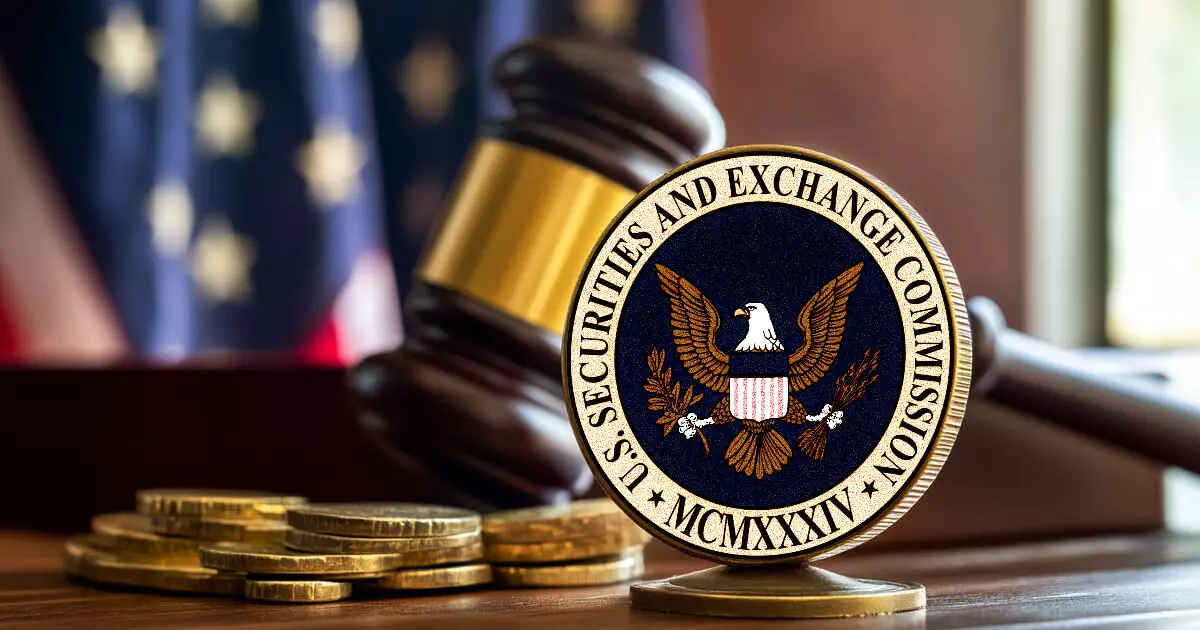The world of cryptocurrency operates in a complex legal landscape, characterized by rapid innovation and often ambiguous regulations. These dynamics were sharply illustrated when the U.S. Securities and Exchange Commission (SEC) charged Cumberland DRW, a prominent Chicago-based crypto market maker, with allegedly acting as an unregistered securities dealer on October 10, 2023. This legal action not only brings into question Cumberland’s operations but also sheds light on the SEC’s broader struggle to impose regulations on a fast-evolving sector where the boundaries between securities and commodities remain fluid.
According to the SEC’s complaint, Cumberland engaged in the trading of over $2 billion in cryptocurrency categorized as securities since March 2018 through its trading platform, Marea, and various over-the-phone transactions. The crux of the SEC’s position rests on the assertion that operating without proper registration represents a violation of federal securities laws, which were designed to protect investors from unscrupulous operators within the market. Jorge G. Tenreiro, acting chief of the SEC’s Crypto Assets and Cyber Unit, emphasized that all market participants dealing in securities must register, a principle that he asserts extends to the ever-growing crypto market.
This case underscores a foundational issue within the cryptocurrency space: the ongoing debate about whether digital tokens should be classified as securities or commodities. Cumberland has contended that tokens should be viewed more as commodities, yet the SEC argues that the actions taken by Cumberland indicate they were trading these assets as securities, thus triggering the need for registration. Such disagreements reflect a broader tension in the crypto sector, where innovators frequently navigate gray areas of regulatory compliance.
The complaint further highlighted Cumberland’s self-identified role as a leading provider of liquidity in the crypto sphere, adding a layer of complexity to their case. By their own admission, they play a significant role in facilitating trading activity, which may amplify the SEC’s concerns regarding investor protection and market integrity.
In light of the alleged violations, the SEC is seeking a range of remedies, including permanent injunctive relief to halt Cumberland’s trading activities, the return of profits deemed to have been unlawfully acquired, and civil penalties aimed at deterring future non-compliance. For Cumberland, these potential outcomes represent significant risks that could fundamentally change its operational landscape.
Cumberland has asserted that it will continue its business practices undeterred. In a public statement on social media platform X, the firm claimed that the SEC’s actions are an attempt to stifle innovation within the industry, implying that overreaching regulations may hinder operational freedom and investment opportunities for various firms within the crypto landscape.
Interestingly, the SEC’s actions coincide with a complex history of interaction between regulatory bodies and Cumberland. The firm reportedly received broker-dealer registration in 2019, facilitated through guidance from SEC Chairman Gary Gensler. However, this registration was noted to be limited solely to Bitcoin and Ethereum trading, exposing the complications surrounding the broader classification of various crypto assets.
The ongoing dialogue between Cumberland and the SEC has extended over five years, featuring discussions on their operations and compliance, yet recent charges have jolted the firm, marking the SEC’s first detailed exposition of specific transactional concerns.
Cumberland DRW’s case serves as a touchstone for evaluating the balance between innovation and regulation within the cryptocurrency industry. As the market for digital assets continues to expand, regulatory authorities like the SEC will likely intensify their efforts to create a framework that effectively addresses the unique challenges presented by crypto transactions. This case may very well be a poignant example of the implications that regulatory scrutiny can have for firms operating in this burgeoning field. Investors, regulators, and market participants will need to stay vigilant as the lines between compliance, innovation, and competition blur in an increasingly complex marketplace.



















Leave a Reply